 Shaun Woodward (right) the MP famed for the twin disgraces of his defection from the Conservatives to Labour and a stint working with Esther Rantzen on That’s Life, is now Creative Industries minister and is busy singing the virtues of the UK’s Digital TV switchover plans.
Shaun Woodward (right) the MP famed for the twin disgraces of his defection from the Conservatives to Labour and a stint working with Esther Rantzen on That’s Life, is now Creative Industries minister and is busy singing the virtues of the UK’s Digital TV switchover plans.
According to the minister, there’s going to be a golden digital age in the UK as more and more employment is provided by the creative industries, our children enjoy interactive education, the sick benefit from Tele-medicine and the new technologies even help the government with transport and defence industries.
Woodward speaking last week at a Royal Television Society event, Digital Switchover- Making it Happen did not seem to think that finding the £26.99 that you can now buy a Freeview box from Argos for, would pose a problem amongst the financially challenged members of the electorate in the deprived St Helens constituency he now represents. Woodward in fact hinted obliquely that although they might fail to feed their children properly and many have high levels of debt, he’d observed some good ‘entertainment kit’ in their homes.
Accompanied by Ford Ennals (below right) the Chief executive of Digital UK, the body charged with making it happen, he made clear that BBC licence fee; although not yet agreed, would be settled by the end of the year and this was would fit in with the digital switchover schedule. ‘The Government needs to be satisfied that licence fee payers are getting value for money,’ he told the audience but he was ‘confident that they’ll get the right number’ at the end of the process of negotiation with the BBC.
Ennals revealed that surveys from trial areas indicated high levels of satisfaction particularly amongst the over 75s, who along with other vulnerable groups that might find the new technology challenging, would be getting assistance. Ennals is busy co-ordinating Digital UK’s nine project strands that include the thorny issue of resolving the platforms being made available to those in Multi Dwelling Units (that’s flats and the like to you and me).
The switchover which is being rolled out region by region, will swap out the old analogue transmissions with super new digital ones starting in what was the Border TV region in 2008 and finishing up, not as originally planned in London, but in the less challenging areas of Tyne Tees and Ulster thus avoiding any conflict with 2012 Olympic games coverage in the nation’s capital.
 Digital UK had the current 98.5% coverage as a target and expects to meet this with additional coverage being by satellite, cable and broadband. Current figures indicate a rump of around 2% of refuseniks, those viewers content with a meagre 4 or 5 channels who see no value in multi-channel viewing, but expectations are this number will shrink as the digitisation spreads across the country like a warm front.
Digital UK had the current 98.5% coverage as a target and expects to meet this with additional coverage being by satellite, cable and broadband. Current figures indicate a rump of around 2% of refuseniks, those viewers content with a meagre 4 or 5 channels who see no value in multi-channel viewing, but expectations are this number will shrink as the digitisation spreads across the country like a warm front.
The average cost per household is predicted to be around £130 the extra costs are likely to be those second and third TV sets that are so easily forgotten, new rooftop aerials and replacement of analogue video recorders.
Woodward repeatedly refused to answer the question as to why the government felt it was the BBC’s responsibility to handle switchover issues rather than Government, who have been happy to find funding to subsidise the over 75s TV licence fees.
The Minister agreed that there were questions still to be resolved, like the value of continuing the current ‘gifting’ of spectrum to Public Service Broadcasters after switchover, and how the desire for High Definition would be met, but they were being evaluated so no need to worry there then.
Digital UK with stakeholders across industry and broadcasting would not make the mistakes seen in Italy, where a planned ‘big bang’ switchover for 2006 had not even registered as a moderate whimper. In the UK it is all so far going swimmingly and Ford thinks the BBC will be keeping up the good work as long as the BBC licence fee is agreed by year end as Shaun assured us it will.
 BBC Director-General Mark Thompson is back on again trying to justify to the British government why the BBC should be allowed to increase their licence fee above the Retail Price Index (RPI).
BBC Director-General Mark Thompson is back on again trying to justify to the British government why the BBC should be allowed to increase their licence fee above the Retail Price Index (RPI).
 A survey released by Best of Stuff suggests that nearly a third of Brits own up to 15 gadgets.
A survey released by Best of Stuff suggests that nearly a third of Brits own up to 15 gadgets.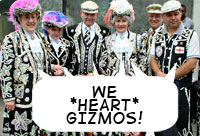 The trusty ol’ gogglebox came in a close second with 27 per cent of the vote, and 46 per cent of those surveyed reckoned that the fabbest new innovation in the market is HDTV.
The trusty ol’ gogglebox came in a close second with 27 per cent of the vote, and 46 per cent of those surveyed reckoned that the fabbest new innovation in the market is HDTV. But it’s not all love-love-love in the world of gizmos, with 40 per cent of respondents declaring themselves disappointed with their gadget’s battery life, pointing the finger of blame at MP3 players, laptops and mobile phones as the worst offenders.
But it’s not all love-love-love in the world of gizmos, with 40 per cent of respondents declaring themselves disappointed with their gadget’s battery life, pointing the finger of blame at MP3 players, laptops and mobile phones as the worst offenders.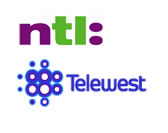 NTL, UK Cable provider, has announced a quad-play offering for £40.
NTL, UK Cable provider, has announced a quad-play offering for £40. Bigging the service up and attempting to create extra excitement for the future, Neil Berkett, chief operating officer of ntl Telewest, enthused: “Quadplay demonstrates the unique power of the cable-Virgin Mobile union and this is just the beginning. Our new package represents unbeatable value while meeting a wide range of consumers’ entertainment and communication needs.
Bigging the service up and attempting to create extra excitement for the future, Neil Berkett, chief operating officer of ntl Telewest, enthused: “Quadplay demonstrates the unique power of the cable-Virgin Mobile union and this is just the beginning. Our new package represents unbeatable value while meeting a wide range of consumers’ entertainment and communication needs. Last week was the annual get together of TV ‘luvvies’ in Edinburgh and this year, as for the last few years, the current moguls felt it necessary to behave like Scrooge, reflect on their previous misdemeanours and take a bit of a look at TV to come.
Last week was the annual get together of TV ‘luvvies’ in Edinburgh and this year, as for the last few years, the current moguls felt it necessary to behave like Scrooge, reflect on their previous misdemeanours and take a bit of a look at TV to come. The spectre of Banquo’s ghost in the shape of everyone’s (now) favourite caterer, Mr Charles Allen, was there and delivered the keynote address, he of course blamed all and sundry for the mess ITV is in – ‘nothing to do with me guv’ should have been the title.
The spectre of Banquo’s ghost in the shape of everyone’s (now) favourite caterer, Mr Charles Allen, was there and delivered the keynote address, he of course blamed all and sundry for the mess ITV is in – ‘nothing to do with me guv’ should have been the title. Samsung is getting ready to unveil what it reckons is the first 70in HD (high-definition) LCD (liquid crystal display) panel.
Samsung is getting ready to unveil what it reckons is the first 70in HD (high-definition) LCD (liquid crystal display) panel.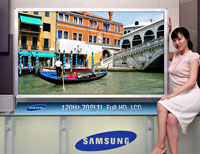 Executive Vice President Kim Sang-Soo of Samsung Electronics was ready to parp his company’s PR trumpet: “Our new 70-inch LCD is not only significantly larger, but also sets a new benchmark of excellence in terms of video image reproduction, viewing angle and image quality. We’ve designed it to dramatically enhance the large screen LCD TV user’s viewing experience. ”
Executive Vice President Kim Sang-Soo of Samsung Electronics was ready to parp his company’s PR trumpet: “Our new 70-inch LCD is not only significantly larger, but also sets a new benchmark of excellence in terms of video image reproduction, viewing angle and image quality. We’ve designed it to dramatically enhance the large screen LCD TV user’s viewing experience. ” Market reaction
Market reaction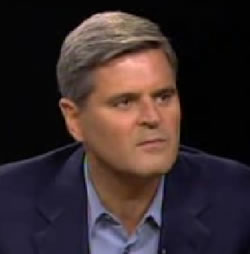 Steve Case, co-founder of AOL, now ex-chairman of AOL-Time Warner, has said he was sorry for the merger between AOL and Time Warner. It is widely regarded as a deal that didn’t go very well, leading to internal wrangling and huge amounts of money being knocked of share values.
Steve Case, co-founder of AOL, now ex-chairman of AOL-Time Warner, has said he was sorry for the merger between AOL and Time Warner. It is widely regarded as a deal that didn’t go very well, leading to internal wrangling and huge amounts of money being knocked of share values.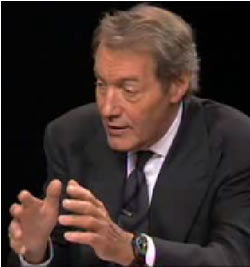 When pushed, Case said from the point of shareholders of the two companies, employees & customers – it didn’t go as he’d hoped, it had been a disappointment and a source for frustration. Given the wide range of those included by Case, we don’t know who else might be disappointed who wasn’t included.
When pushed, Case said from the point of shareholders of the two companies, employees & customers – it didn’t go as he’d hoped, it had been a disappointment and a source for frustration. Given the wide range of those included by Case, we don’t know who else might be disappointed who wasn’t included. Today it was announced that Whitehaven, Cumbria will be the first area in England to have its TV reception changed over from analog to digital.
Today it was announced that Whitehaven, Cumbria will be the first area in England to have its TV reception changed over from analog to digital. Shaun Woodward (right) the MP famed for the twin disgraces of his defection from the Conservatives to Labour and a stint working with Esther Rantzen on That’s Life, is now Creative Industries minister and is busy singing the virtues of the UK’s Digital TV switchover plans.
Shaun Woodward (right) the MP famed for the twin disgraces of his defection from the Conservatives to Labour and a stint working with Esther Rantzen on That’s Life, is now Creative Industries minister and is busy singing the virtues of the UK’s Digital TV switchover plans. Digital UK had the current 98.5% coverage as a target and expects to meet this with additional coverage being by satellite, cable and broadband. Current figures indicate a rump of around 2% of refuseniks, those viewers content with a meagre 4 or 5 channels who see no value in multi-channel viewing, but expectations are this number will shrink as the digitisation spreads across the country like a warm front.
Digital UK had the current 98.5% coverage as a target and expects to meet this with additional coverage being by satellite, cable and broadband. Current figures indicate a rump of around 2% of refuseniks, those viewers content with a meagre 4 or 5 channels who see no value in multi-channel viewing, but expectations are this number will shrink as the digitisation spreads across the country like a warm front. One of the challenges facing Stephen Carter’s replacement as head of the UK communications regulator Ofcom, is how the frequency spectrum released by the move to digital terrestrial TV will be allocated. Not only is the decision crucial for Ofcom, who must reconcile both the requirement to allow the market to operate while taking into account the British citizen, but it also figures in the BBC’s strategy around the impending licence settlement and the organisations’ worldwide ambitions.
One of the challenges facing Stephen Carter’s replacement as head of the UK communications regulator Ofcom, is how the frequency spectrum released by the move to digital terrestrial TV will be allocated. Not only is the decision crucial for Ofcom, who must reconcile both the requirement to allow the market to operate while taking into account the British citizen, but it also figures in the BBC’s strategy around the impending licence settlement and the organisations’ worldwide ambitions. How will displays receive the content to create the impetus for a large scale take up? The likely options are; Cable under what is expected to be a Virgin branded offering; Sky who are pushing HD to protect and grow their revenue; the BBC who are committed to both an alternative to Sky on Satellite and providing their content on all viable platforms and broadband, which looks increasingly viable by virtue of higher transfer rates to the home, along with improved digital compression technologies.
How will displays receive the content to create the impetus for a large scale take up? The likely options are; Cable under what is expected to be a Virgin branded offering; Sky who are pushing HD to protect and grow their revenue; the BBC who are committed to both an alternative to Sky on Satellite and providing their content on all viable platforms and broadband, which looks increasingly viable by virtue of higher transfer rates to the home, along with improved digital compression technologies. France, slower off the blocks in moving to a Digital Terrestrial TV service, with its’ amusingly acronym-ed TNT, has a solution that builds in HD capabilities, and for sure the UK will not wish to be seen falling behind mainland Europe.
France, slower off the blocks in moving to a Digital Terrestrial TV service, with its’ amusingly acronym-ed TNT, has a solution that builds in HD capabilities, and for sure the UK will not wish to be seen falling behind mainland Europe.